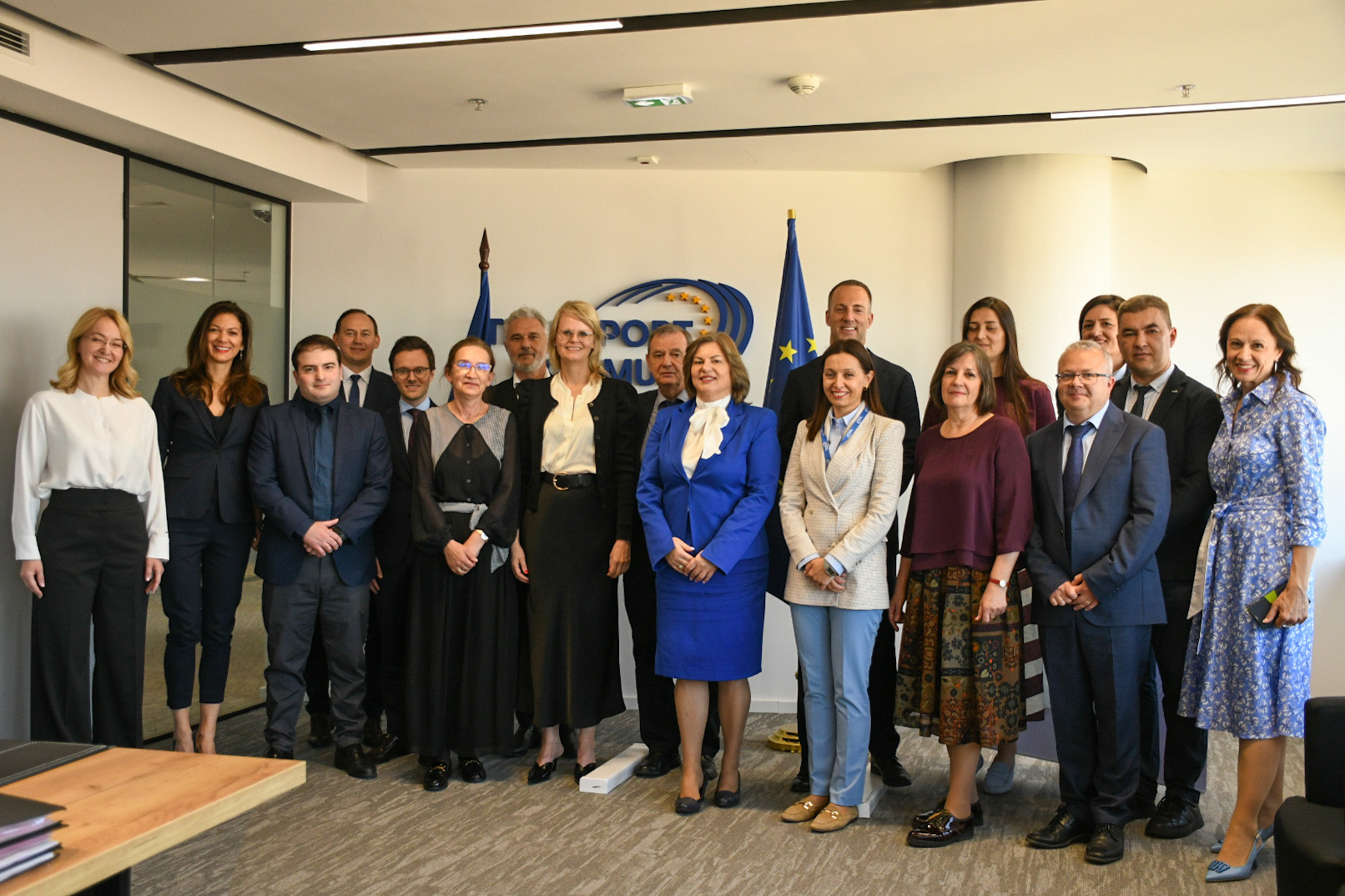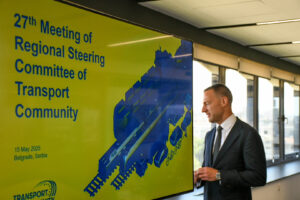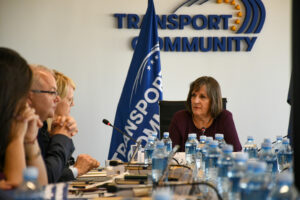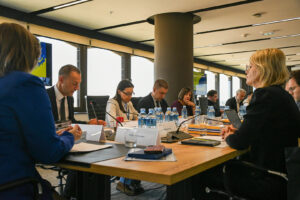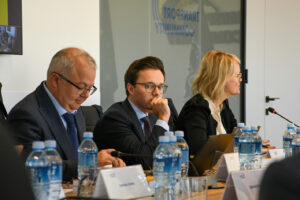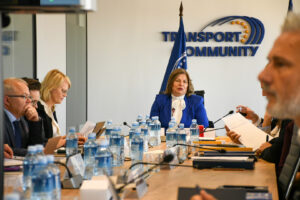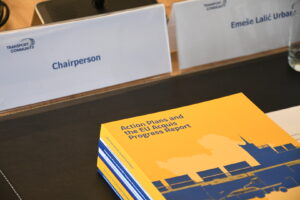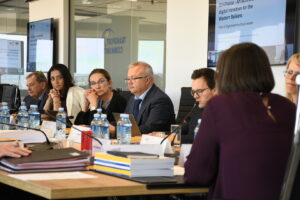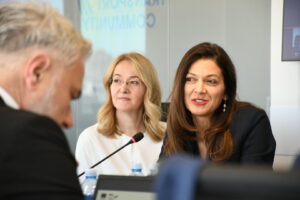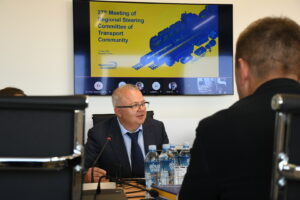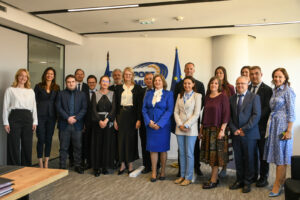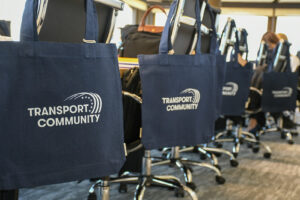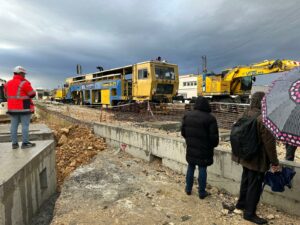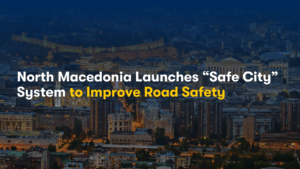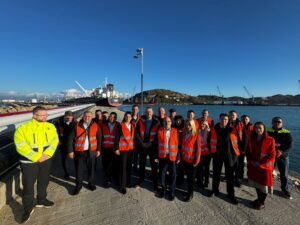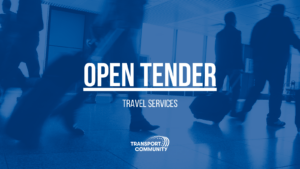BELGRADE – Representatives of the six Western Balkan regional partners, and observing participants (Georgia, the Republic of Moldova, and Ukraine), the European Commission, and the Permanent Secretariat of the Transport Community, gathered on 15 May in Belgrade for the 27th meeting of the Regional Steering Committee of the Transport Community.
The meeting’s participants discussed progress and the next steps on making transport in the region more digital, sustainable, and fully integrated in the European transport market.
For the presidency, Ms Emeše Lalić Urban, Committee Chairperson and State Secretary at the Ministry of Construction, Transport and Infrastructure of Serbia pointed out that the Transport Community has laid the foundation for a connected, efficient, and sustainable transport network, essential for aligning with EU standards and unlocking access to crucial funding mechanisms like the Growth Plan. “For the Western Balkans, joint planning and concrete action in transport are key to fostering integration, prosperity, and peace across the region. This is particularly relevant for Serbia, as progress in transport connectivity is a cornerstone for benefiting from the EU Growth Plan and accelerating economic convergence with the European Union,” she underlined.
Committee Co-Chair and Director for Policy Coordination in the Directorate-General for Mobility and Transport of the European Commission, Ms Mona Bjorklund, welcomed several technical assistance projects presented today. She urged the regional partners to seize these opportunities to deliver concrete progress on the commitments made in the reform agendas and on overall alignment with the EU acquis.
Director of the Permanent Secretariat of the Transport Community, Mr Matej Zakonjšek, underlined that today’s meeting confirms a joint commitment to making transport in the Western Balkans and across the observing participants smarter, safer, and greener, in line with the EU standards. “By embracing digital tools, strengthening regional cooperation, and focusing on sustainability, we are improving everyday life for citizens and businesses, and equally important, we are bringing the region closer to the European Union and its standards, ultimately catching up with the latest developments in the field,” he pointed out.
The meeting discussed the region’s growing shift toward digital solutions in transport starting with the discussion on work under the EU4Digital programme. Further discussions covered the intelligent transport systems reform measures envisaged within the Growth Plan for Western Balkans, but also the upcoming Digital Mobility and ITS Conference for Western Balkans and Observing Participants scheduled to take place in Seville, Spain, on 20 May.
The progress of the Green Lanes initiative was also reviewed. Following the EU-Western Balkans Summit in December 2024, the World Bank and European Commission shared options for continuing support to the initiative through a new programme for safe and sustainable transport.
The meeting deliberated updates on technical assistance related to multimodality, terminal assessment, and digitalisation, as well as efforts to green urban transport through the introduction of low-emission buses. Participants also received elaborated information on the technical assistance for setting up of the Western Balkans Register of Road Undertakings.
The meeting agreed on updates to the Transport Community Treaty’s Annex I, a document that outlines relevant EU acquis to be transposed by the regional partners and observing participants.
Furthermore, the participants were briefed on the outcomes of the 6th Social Forum and an upcoming road safety campaign promoting seat belt use.
Finally, the meeting also discussed a variety of administrative topics, including external audit, the operational report for 2024, the 2026 budget, and updates on staffing and expert engagement.

